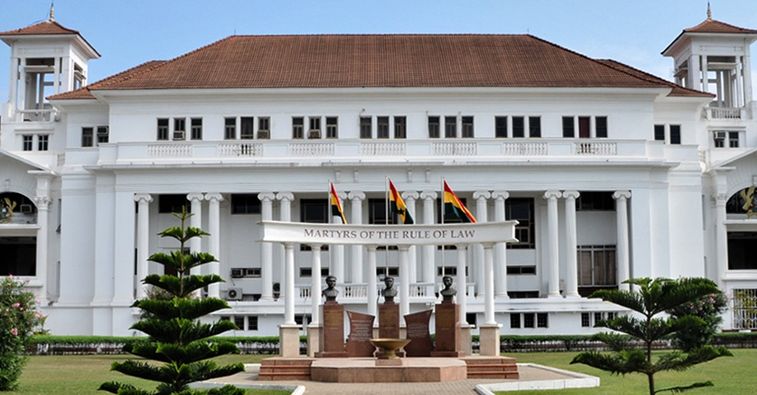Quayson’s Certiorari, Prohibition against H.C: Counsel moves motion, ruling deferred to Nov 30
The court, presided over by Justice Jones Dotse took this decision after counsel for the MP, Tsatsu Tsikata had moved the motion.

The Supreme Court has deferred ruling on a motion for Certiorari and Prohibition by the embattled Assin North MP against a High Court(Criminal Division) decision to November 30.
The court, presided over by Justice Jones Dotse took this decision after counsel for the MP, Tsatsu Tsikata had moved the motion.
Speaking at the apex court before the 5-member panel, he noted among others that there was a fundamental error albeit elementary error in the law relative to the High Court Judge’s decision.
He added that it is due to the above that his client is “seeking not only seeking to quash but an order of prohibition on her from proceeding in respect of her statement which clearly in error.
In February this year, Mr. James Gyakye Quayson was charged by the state with five counts of perjury and forgery of a passport with the specific charges being; deceit of a public officer, forgery of a passport, knowingly making a false statutory declaration, perjury, and false declaration.
In July 2022, Mr. Tsikata objected to the 1st Prosecuting Witness, Richard Takyi-Mensah, and his subsequent tendering of his witness statements.
However, the trial Judge overruled the above noting that the witness was competent and duly admitted the witness statements and paragraphs.
According to the embattled MP, the above ruling of the trial judge essentially mirrors statements made by the Director of Public Prosecution per the case of Justice Smith v KLM.
On her part, the Director of Public Prosecution, Yvonne Attakora Obuobisa noted that the applicant had failed to properly invoke the Supervisory Jurisdiction of the court.
She added that the applicant has failed to show that there was a patent or fundamental error that goes to Jurisdiction and that the learned Judge acted within Jurisdiction in holding that the witness was a ‘competent witness.’
Referring to Sections 60(2), 111, and 112 of the (NRCD 323) she said that the evidence is personal knowledge and need not consist of the testimony of the witness himself.
She, therefore, noted that even if the said adoption of the statements by the trial judge was wrong, it does not constitute a fundamental error and thus described the application as frivolous and ought to be dismissed.
After listening to both counsels, the court adjourned to November 30, 2022, for a ruling.


